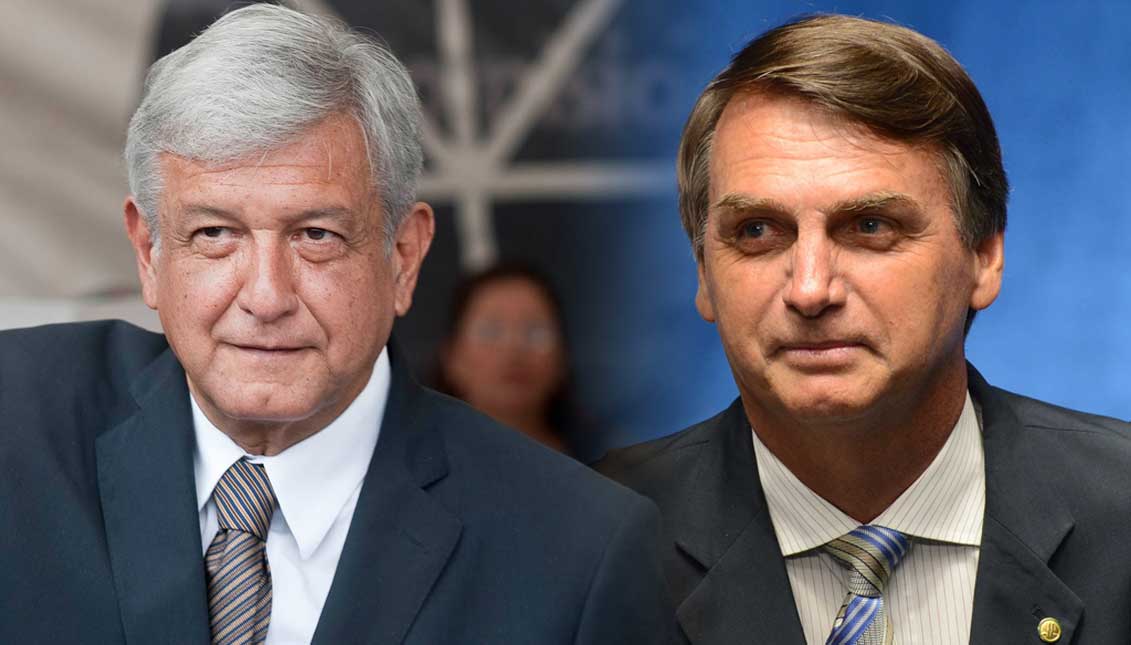
Elections in Latin America: a new landscape
After years of corruption and social instability, Latin America is facing an electoral period that could change the political and economic landscape of the…
In Latin America we are used to two constant political phenomena: the bitter bipartisanship - in the form of modern caudillismo (chieftainship), where the people expect the leader to solve their problems - and an electoral surprise that occurs once every ten years (approximately).
We seem to have forgotten radical extremists, such as the FARC or the ELN in Colombia, the paramilitaries, the "contra" in Nicaragua, the MST in Brazil or the "fanzendieros"; the Zapatismo in Mexico or the federated indigenous movement, and even the "piqueteros" in Argentina.
What Latin America is currently experiencing is the direct consequence of the unfinished dissolution of extremes on both sides and the innocuousness of a truly democratic policy.
"It is true that there is a 'geography' called Latin America; what does not necessarily coincide with the existence of a political system that encompasses that region," says Luis Dallanegra Pedraza, Ph.D. in Political Science and International Relations at the National University of Rosario.
Pedraza insists on a "before and after" in Latin America after the fall of the Berlin Wall in 1989 and the expansion of capitalism as the prevailing economic model, which seemed to make the caudillismo and the "vertical paternalism" in the systems of government, give in.
And then Hugo Chávez arrived.
Despite his efforts to establish a misnamed Bolivarian Revolution against the "imperialism" that inspired the figure of George Bush, chavism transformed itself into a hegemonic system of paternalistic governments scattered by neighboring countries, which sowed corruption and economic failure in the shadow of an outdated ideal.
"The Latin American political system has oscillated between the defenders of the status quo, whose criterion is closely linked to that traditional of development of liberal or neoliberal ideology, and the reformers whose aspirations mobilize them to change in their different ranges of possibilities," continues Pedraza.
Thus, a large number of political parties have emerged - coalitions, conciliations, independents, and wolves disguised as sheep - lacking representativeness, which has ruled out electoral participation.
Poverty, exacerbation of social problems, violence, and widespread discontent has represented Latin American politics in the last ten years.
That is why the electoral landscape of 2018 is anticipated as a major restructuring in Latin American politics. There are six presidential elections "of great significance", as determined by Carlos Malamud in El Heraldo de México.
Costa Rica (February 4 and April 1 if there is a second round), Paraguay (April 22), Colombia (May 27 and June 17), Mexico (July 1), Brazil (October 7 and 28) and if you can trust the electoral system, Venezuela (the last quarter).
Also, and for the rest of 2017, elections will be held in Chile (November 19 and December 17) and in Honduras (November 26).
In all cases (perhaps a little less in the Chilean), "uncertainty is high," Malamud continues.
After the triumph of Mauricio Macri in Argentina, the fall in Bolivarianism in Latin America opened the gate for independent candidates from both the right and the left, who predict an important transformation in doors.
The two largest economies - Mexico and Brazil - seem to be heading for a radical change in their policies, which could affect the overall economy of the continent.
According to Nacha Cattan and David Biller on Bloomberg, "after 36 years of free-market technocrats, Mexicans could anoint a leftist firebrand who’s threatened to take on Donald Trump."
RELATED CONTENT
Trumpist hostility against Mexico has allowed the resurgence of a populist candidate known as Andrés Manuel López Obrador (Amlo), who has campaigned for Mexican nationalism against US threats to withdraw from NAFTA, and promising “to boost the minimum wage and increase social spending”.
Brazil, on the other hand, seems to have ended matters with the Labor Party - which has been in power for 13 years and after corruption scandals - to open up the possibility of a "former army captain, nostalgic for a military regime."
Jair Bolsonaro - a congressman for seven years in Rio de Janeiro - has proclaimed himself "a threat to the persistent corruption" and has promised Brazilians access to arms to confront violence, which would be critical in a country where "seven people are killed every hour."
Both candidates are seen as favoring the nationalization of industries (although not in a radical way) and this puts investors on alert.
Between corruption and low acceptance rates, neither Peña Nieto in Mexico nor Temer in Brazil will seek re-election, and both will leave as legacy an economy that refuses to grow.
This climate will encourage the "volatility of asset prices", as explained by the Colombian portal Portafolio.
According to several international analysis centers, the risks are much more than the opportunities in a political scenario similar to the one we just draw.
One of the most important US financial groups, Morgan Stanley (MS), stated that "in addition to the concern associated with each process, the next 12 months will have an effect on the region due to the significance and uncertainty of the five upcoming elections."
MS also warned that the currency negotiations would begin to take shape "between 3 and 4 months before the day of the election."











LEAVE A COMMENT:
Join the discussion! Leave a comment.